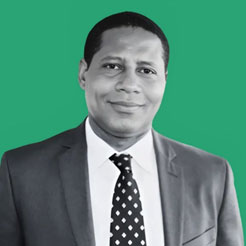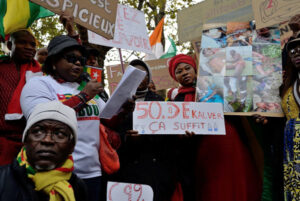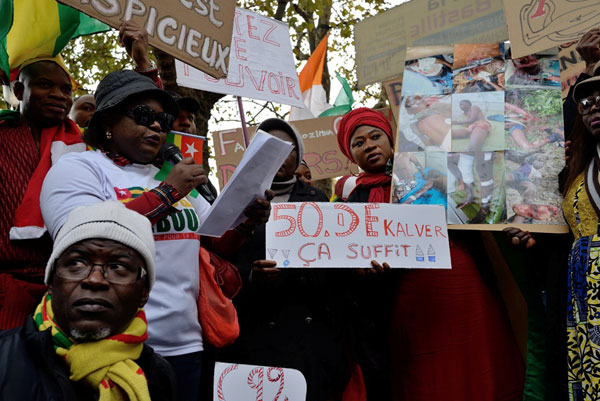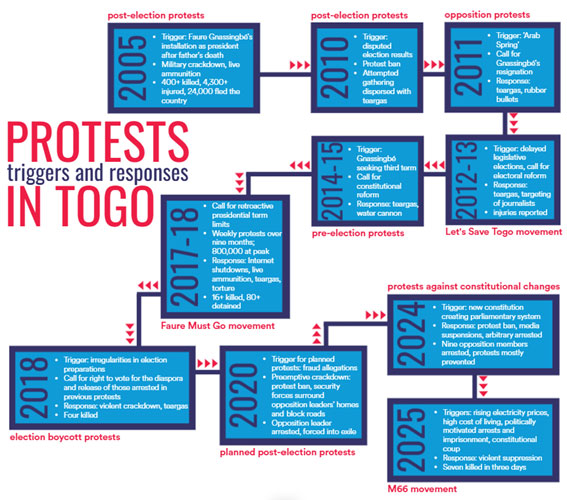
Active Citizens, Africa, Civil Society, Crime & Justice, Democracy, Development & Aid, Economy & Trade, Energy, Featured, Headlines, Human Rights, Labour, Natural Resources, TerraViva United Nations
–
CIVICUS discusses recent protests in Angola with Florindo Chivucute, founder and executive director of Friends of Angola, a US-based civil society organisation established in 2014 that works to promote democracy, human rights and good governance in Angola.
 The Angolan government’s 1 July decision to remove diesel subsidies, sharply pushing up public transport costs, triggered a series of protests. Angola is one of Africa’s biggest oil producers, but many have seen little benefit from its oil wealth and continue to live in poverty. People have taken to the streets in unprecedented numbers to demand an end to corruption and mismanagement, presenting the ruling party, in power for 50 years, with its biggest test. Security forces have responded to incidences of looting and vandalism with lethal violence. At least 30 people have been killed, 277 injured and over 1,500 arrested.
The Angolan government’s 1 July decision to remove diesel subsidies, sharply pushing up public transport costs, triggered a series of protests. Angola is one of Africa’s biggest oil producers, but many have seen little benefit from its oil wealth and continue to live in poverty. People have taken to the streets in unprecedented numbers to demand an end to corruption and mismanagement, presenting the ruling party, in power for 50 years, with its biggest test. Security forces have responded to incidences of looting and vandalism with lethal violence. At least 30 people have been killed, 277 injured and over 1,500 arrested.
What triggered the protests?
Fuel subsidy cuts sparked the crisis. The protests began on 28 July, after the government’s decision to remove diesel subsidies immediately pushed up fuel prices. What started as a drivers’ strike in Luanda, the capital, quickly spread to other provinces and escalated into bigger protests.
The impact was devastating. For many families, even a small rise in fuel costs is crushing, because wages have been eroded by years of recession and currency devaluation. When transport costs rise, food prices and school fees rise too, leaving those already struggling unable to make ends meet.
But fuel was just the trigger. The unrest reflected much deeper frustrations, including high unemployment, particularly among young people, growing poverty and anger at corruption and mismanagement. People see public resources channelled into luxury spending and infrastructure deals benefiting a few powerful figures connected to the ruling People’s Movement for the Liberation of Angola (MPLA), while basic services and jobs are neglected. Combined with the immediate shock of higher fuel prices, these grievances fuelled widespread anger.
Why are people struggling in such a resource-rich country?
This is the irony at the heart of the crisis. Angola produces large quantities of oil, along with diamonds, yet most people don’t see the benefits. Mismanagement and entrenched corruption are central to the problem. Revenues from natural resources have too often been captured by networks close to political power and channelled abroad or invested in ways that don’t create jobs.
Angola’s dependence on fuel imports makes the situation worse. We don’t have sufficient domestic refining capacity. Instead of using oil revenues to build refineries and strengthen local industry, a system emerged in which those with political connections profited from importing refined products back into the country. This removed incentives to invest in local processing or agriculture. The result is a tiny wealthy elite and a large majority with very low wages and limited access to services.
What do these protests reveal about the government’s grip on power?
The protests have marked a turning point. The MPLA has dominated politics since independence in 1975, and large-scale protests are not common. The fact that so many people were willing to take to the streets, particularly in and around the capital, shows growing discontent with the government and ruling party.
The authorities’ reaction has been heavy-handed. Security forces have used teargas and live ammunition in some cases, and carried out numerous arrests, including of union leaders and journalists. In some areas protests were accompanied by looting and, tragically, by deadly clashes with security forces. Civil society has since called for investigations into the killings and for accountability for those responsible.
The government’s strategy risks backfiring. By responding with force and detentions, it risks creating a greater sense of mistrust and frustration, which could influence how people engage with political processes as we approach the 2027 election.
How is civil society organising and what challenges does it face?
Civil society – including church groups, trade unions and local associations — has mobilised quickly to call for accountability and transparency. New coalitions are forming; for example, groups such as the Bishops’ Conference of Angola and São Tomé and Príncipe’s Episcopal Commission for Justice and Peace, Friends of Angola, the Justice, Peace and Democracy Association and Pro Bono Angola are working with religious organisations to push for investigations into the killings and provide humanitarian support to families affected by the unrest.
But the environment is hostile. Funding for democracy and human rights work is scarce, so organisations struggle to pay staff or sustain programmes.
State surveillance creates another barrier. The state has invested heavily in surveillance infrastructure, and civil society organisations are often targeted by cyber intrusions and closely monitored. The legacy of communist authoritarian rule creates deep mistrust, which makes organising more difficult.
Language barriers limit international support. Much of the work happens in Portuguese, which limits reach to the wider international audience that often communicates in English, French or Spanish.
Additional restrictions threaten to further tighten civic space. Recent draconian measures include the 2024 National Security Bill and the Bill on the Crime of Vandalism of Public Goods and Services. In addition, the 2023 draft law on Non-Governmental Organizations, approved by presidential decree, imposed harsh regulations. These restrictive laws and policies undermine fundamental freedoms and, if fully implemented, risk worsening the already limited environment for civil society in Angola.
What would it take to address the underlying problems?
Strong political will is needed to tackle corruption and manage public finances transparently. This means opening up procurement and fiscal data, pursuing accountability for past abuses, and ensuring resource revenues are channelled into public priorities such as hospitals, local industry and schools. Investment in education, healthcare and small-scale agriculture would create jobs, strengthen livelihoods and reduce dependence on imports.
Institutional reform is equally vital. This means protecting property rights, improving the business environment so investment generates employment and strengthening an independent judiciary and electoral processes so people can seek change through democratic channels.
International partners have a role to play by supporting electoral transparency and demanding accountability from companies and governments that operate in Angola.
The 2027 election will offer a crucial test. The international community should pay close attention and support reforms that increase transparency and electoral integrity. Electoral reforms and the clear, public release of results at the local level would go a long way towards restoring confidence in democratic processes.
GET IN TOUCH
Website
Facebook
Instagram
LinkedIn
Twitter
SEE ALSO
Angola: ‘Criticising the government means risking arbitrary detention, intimidation and physical assault’ CIVICUS Lens | Interview with Pedro Paka 30.Jul.2025
Angola: Repressive new laws threaten civic space CIVICUS Monitor 15.Sep.2024
Angola: ‘The untrue government narrative reveals an aversion to civil society denouncing malpractice’ CIVICUS Lens | Interview with Emilio José Manuel 01.Jan.2025











